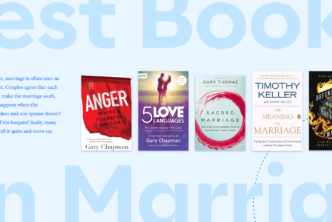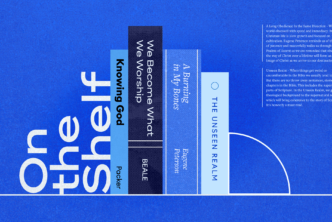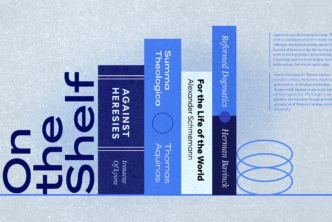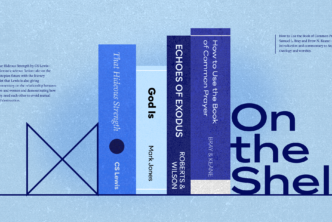Ryan Lytton is assistant professor and director of academic services at Life Pacific University-Virginia. He earned a bachelor’s degree in biblical studies from Life Pacific University where he graduated in 2007. From there he went on to complete a master of arts in Christian thought from Gordon-Conwell Theological Seminary where he focused on how the Bible was interpreted in the patristic period (100–800 CE).
He’s currently pursuing a PhD through Southeastern Baptist Theological Seminary, continuing his study of patristic exegesis.
1. Life in the Trinity, by Donald Fairbairn
This book has changed my life more than anything other than the Bible itself. Put simply, this book (and classes with Fairbairn) helped me with pivoting my understanding of salvation away from a fixation on sin forgiveness and behavioral management and towards union with Christ and progressive conformity to his image. Bonus points because he shows how this perspective originates in the early church, which will ignite in the reader a passion for patristics.
2. What Christians Ought to Believe, with Michael F. Bird
This is probably the best introduction to basic Christian beliefs that I’ve ever read. It’s easy to read, occasionally funny (it is Bird, after all), and the content is solid.
Get the video lectures below.
3. Across the Spectrum: Understanding Issues in Evangelical Theology, by Gregory A. Boyd and Paul Rhodes Eddy
This is the best survey of various perspectives on the most important topics in evangelical theology. It’s not perfect, but it sure is close. I can only tell in one chapter where the authors land for sure, and that probably has at least something to do with my knowledge of Boyd prior to reading this book.
4. Bullies and Saints: An Honest Look at the Good and Evil of Christian History, by John Dickson
Church history is my primary discipline (specifically, patristics) and the violence done to history by Christians and non-Christians alike is troublesome. (Shoutout to the excellent blog and YouTube channel, History for Atheists.) This incredible book presents accurate depictions of important periods in church history and shows how every period has bullies and saints—and sometimes they’re the same person.
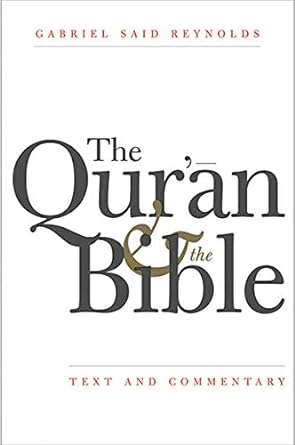
5. The Qur’an and the Bible, by Gabriel Said Reynolds
Taking a sharp turn here: one of my emerging interests over the past several years has been world religions, especially inter-religious dialogue. Reynolds has done a tremendous amount of work in this field with regard to Islam and Christianity. But this book is by far his best. It’s a translation of the Qur’an, but inset within the text are excerpts from biblical and extra-biblical literature that is referenced in some way by the Qur’an, including commentary on how that material might have made it to the Arabian peninsula. This does an incredible job of showing just how connected the Qur’an is to biblical literature, and in many places it shows how the Qur’an assumes that its reader knows the biblical narrative (for more on that see Reynolds’s The Qur’an and its Biblical Subtext).
6. Christian Theology in the Pluralistic World: A Global Introduction, by Veli-Matti Kärkäinen
Kärkäinen is a machine. He’s one of those scholars that seems to write in his sleep. This work is the product of years of studying Christian theology while at the same time studying world religions. He puts all of the central doctrines of Christianity into conversation with Islam, Buddhism, Hinduism, and Judaism. It’s brilliant. And there’s a shorter version available in Doing the Work of Comparative Theology.

7. The Global Church—The First Eight Centuries: From Pentecost through the Rise of Islam, by Donald Fairbairn
Along with works by scholars Lamin Sanneh and Philip Jenkins, Fairbairn carefully illustrates how Christianity has a truly global history, even prior to the advent of the modern missionary movement. When most historians rush to get to European history, Fairbairn shows how the church spread in every other direction just as fast.
8. Seeing the Word: Refocusing New Testament Study, by Markus Bockmuehl
This is definitely an academic work, and thus may be a challenge for some readers. But if it were up to me, every biblical interpretation course at or above the graduate level would require this book either as a textbook or as pre-reading. Bockmuehl beautifully illustrates the quagmire that New Testament studies often finds itself in and suggests a helpful way forward.
9. Formation of Christian Theology (3 vols.), by John Behr
Behr is a provocative and original (Origenal?) thinker. His work on Nicaea orients the reader to this foundational period in history in ways that are hard to describe. It’s hard to pin Behr down. It doesn’t read like history, but it doesn’t read like theology. But it’s both. Anything Behr writes is worth reading. His fresh translations of Origen’s On First Principles is a gift.
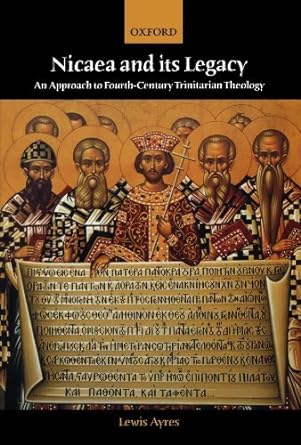
10. Nicaea and its Legacy: An Approach to Fourth-Century Trinitarian Theology, by Lewis Ayres
Speaking of Nicaea, Ayres work is definitional. If you pick one book to understand this crucial period, let it be this one.
Don’t miss these other book recommendations
- Hot Takes on Top Commentary Sets in Logos
- 10 Anglican Books You Should Know
- 42 Best-Selling Books by & for Pentecostals
- 40 Best-Selling Books for Baptists


